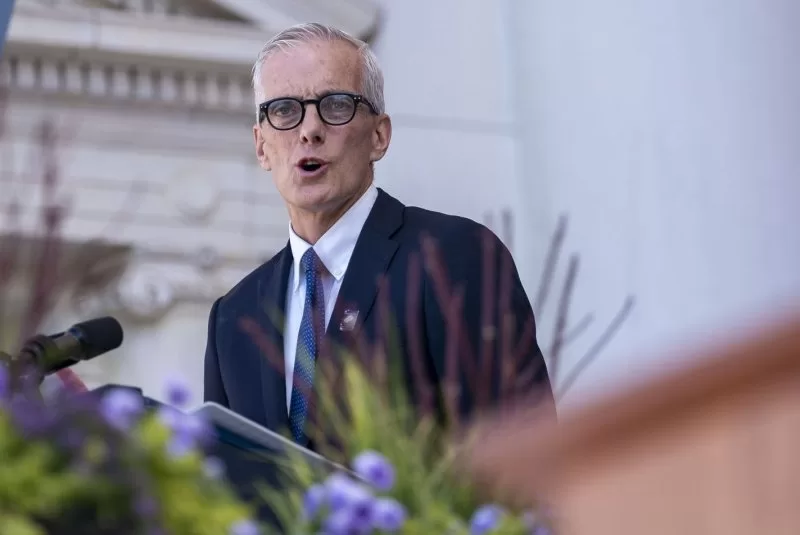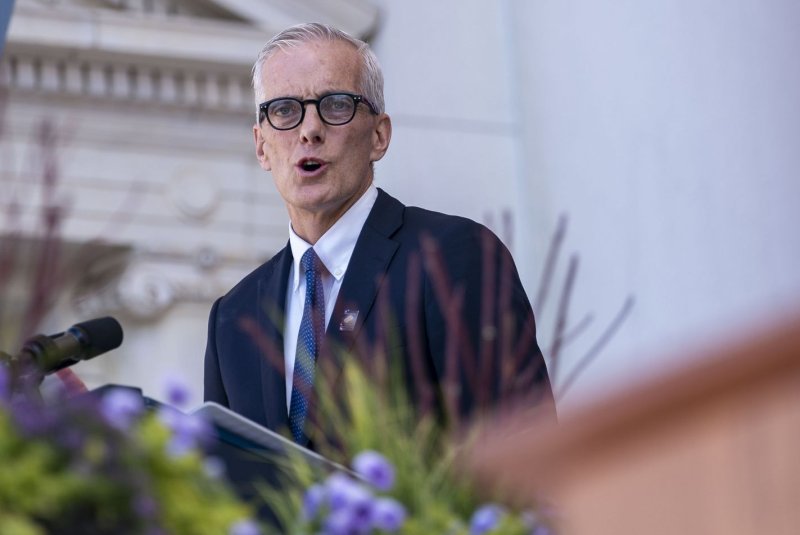Secretary of Veterans Affairs Denis McDonough speaks during the National Veterans Day Observance at the Memorial Amphitheater in Arlington National Cemetery in Arlington, Virginia on Monday, as the VA announced plans to eliminate copays for veteran telehealth services. Photo by Bonnie Cash/UPI |
License PhotoNov. 11 (UPI) — The U.S. Department of Veterans Affairs announced plans Monday to eliminate copayments for all VA telehealth services, while expanding online emergency care access for rural veterans.
The VA, which made the announcement on Veteran’s Day, plans to establish a grant program — called Accessing Telehealth through Local Area Stations or ATLAS — that would fund designated VA telehealth access points in non-VA facilities in rural and medically underserved communities. ATLAS would provide veterans with private spaces and high-speed Internet to meet with their providers remotely.
“Waiving copays for telehealth services and launching this grant program are both major steps forward in ensuring veterans can access health care where and when they need it,” said VA Secretary Denis McDonough.
“VA is the best and most affordable care in America for Veterans — with these steps, we can make it easier for Veterans to access their earned VA healthcare,” McDonough added.
In September, the VA made emergency telemedicine available to veterans nationwide. A pilot program for 60,000 people held a 59.4% success rate, with many veterans receiving care without leaving home.
“Veterans can now be evaluated for possible emergencies from the comfort of their home,” VA Under Secretary of Health Shereef Elnahal, M.D., said in September. “Sometimes, you’re not sure whether what you’re experiencing is a minor emergency or not — and tele-emergency care can help you resolve those questions.”
In addition to eliminating copayments for VA telehealth services, the VA has started to waive veterans’ copays for their first three outpatient mental health care visits each year.
The VA also decreased wait times for new patient appointments for primary and mental health care, and expanded the number of night and weekend clinic appointment openings for veterans.

